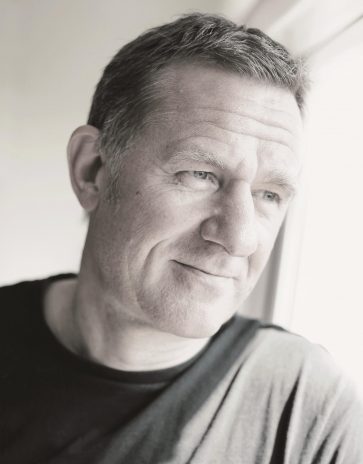 It’s customary whenever a famous person dies to praise said person to the skies and proclaim that whatever field s/he happened to be active in is much poorer for their absence. Yet in the case of the English fantasist Graham Joyce, who died last Tuesday at the far too young age of 59, it’s a plain fact that he’s fully deserving of all the praise you can heap on him, and that our world has been dealt an incalculable blow by his passing.
It’s customary whenever a famous person dies to praise said person to the skies and proclaim that whatever field s/he happened to be active in is much poorer for their absence. Yet in the case of the English fantasist Graham Joyce, who died last Tuesday at the far too young age of 59, it’s a plain fact that he’s fully deserving of all the praise you can heap on him, and that our world has been dealt an incalculable blow by his passing.
Graham Joyce was simply one of the finest writers in or out of the fantasy/horror field, gifted with a superbly lyrical yet natural and unaffected prose style (which he termed “old peculiar”), and a storytelling flair that remains unmatched. Joyce juxtaposed the mundane and the supernatural with a flourish that outdid the work of just about any other current fantasist, a talent that bespeaks a great knowledge of the mechanics of fantasy writing as well as a masterful grasp of character.
Standout examples of Joyce’s genius can be found in his young adult novel DO THE CREEPY THING, whose teen protagonist finds herself cursed—although the details of her exploits bussing tables at a sleazy pub are every bit as interesting as the supernatural business. Equally striking is the narrative arc, which has the heroine learning to live with and use the powers bequeathed by the curse to her advantage.
Like any great writer, Joyce had a favored set of themes, the most prominent of which is well represented by DO THE CREEPY THING, as well as other Joyce classics like THE TOOTH FAIRY, LENINGRAD NIGHTS, THE FACTS OF THE LIFE, SOME KIND OF FAIRY TALE and his final novel, YEAR OF THE LADYBIRD/THE GHOST IN THE ELECTRIC BLUE SUIT: the supernatural-tinged coming-of-age saga.
Other noteworthy Graham Joyce works include the straightforward horror-fest DREAMSIDE, his mighty impressive debut novel; HOUSE OF LOST DREAMS, a highly atmospheric account of muted terror on a Grecian isle; the TWILIGHT ZONE-ish SILENT LAND, which isn’t my favorite of his books, although it has its admirers; and MEMOIRS OF A MASTER FORGER/HOW TO MAKE FRIENDS WITH DEMONS, a deeply odd, experimental account about which I’m not entirely sure how I feel. All those books, in any event, are well worth your time.
Problems? As a writer Graham Joyce did admittedly have a few, most notably his often less-than-satisfying endings, a flaw he shared with fellow horror scribe (and longtime Joyce admirer) Stephen King. Clearly, the enormous passion Joyce put into his narratives made it difficult to wrap them up. Yet, also in common with Mr. King, those narratives were robust enough that I for one am willing to forgive the fact that they didn’t always end as strongly as they could have.
As to the sort of life Joyce led, I can’t say. He wasn’t the type to brag about his accomplishments or deliver long sermons on his writing, and nor was he apt to bellyache about his terrible childhood. Rather, he seemed to be much like his writing: wry and intelligent, yet also humble and unpretentious. The details of Joyce’s life—when not writing he worked as a teacher and football (soccer to us) player—were clearly reflected in his writing, be it about a cursed teen in London, a young boy growing up amid the 1941 Nazi siege of Leningrad (the subject of the aforementioned LENINGRAD NIGHTS), or his own lengthy battle with cancer (as detailed with enormous grace and clarity in his personal blog).
One more thing: Graham Joyce was an extremely prolific writer, which has proven to be a damn good thing. We may not be seeing any new Joyce books, but the treasure-trove of novels and stories he left behind will certainly live on.
